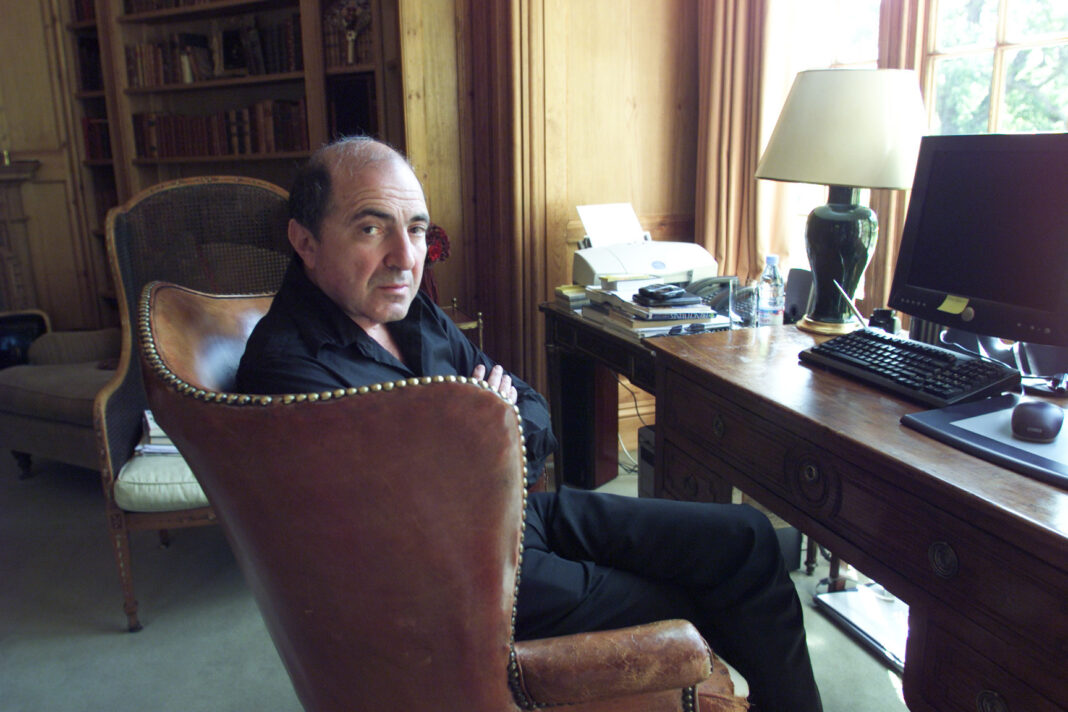BIOGRAPHY:
Boris Berezovsky was a businessman and deputy accused of money laundering and even attempting to seize power by force. The politician’s biography was connected with Great Britain until the last days of his life. In 2008, Berezovsky, with a fortune of $1.3 billion, was considered one of the wealthiest Russians, but in the last months of his life his financial situation worsened, which was considered one of the possible reasons for his death.
Childhood and youth:

Boris Abramovich was born in Moscow. His father Abram Markovich was a civil engineer, and his mother worked as a laboratory assistant at the Institute of Pediatrics. Boris went to school a year ahead of schedule, and studied in a special school with English as the language of instruction. After receiving his matriculation certificate, he wanted to enter Moscow State University, but, according to him, he was not enrolled because of his Jewish nationality. Therefore, he became a student at the Moscow Forestry Engineering Institute, where he received a degree in electronics engineering. Later, Boris studied at Moscow State University, graduated from graduate school there, defended his dissertation, and later became a professor. As for his work activities, in his youth Berezovsky went through all the stages at a research institute until he began managing projects at AvtoVAZ. In addition, the man wrote more than a hundred scientific articles and monographs, and also published works on the topic of restructuring the country’s economic mechanism for the newspaper “Soviet Russia”.
Businessman:

Boris Berezovsky proved himself as a businessman even when he was an employee of AvtoVAZ, so he decided to found his own company and created LogoVAZ. His office was engaged in the sale of cars that were returned from foreign car shows. Later, Berezovsky’s company became the official Russian partner of Mercedes, and banks and even the central TV channel ORT appeared in the structure of his enterprises.
By the end of the 90s, Boris Berezovsky owned, among other things, the Kommersant media group, which controlled a number of media outlets, including such famous ones as the newspaper Komsomolskaya Pravda, the magazine Ogonyok, the radio station Nashe Radio and the television company “First channel”.
As a member of the board of directors of the Siberian Oil Company, more commonly called Sibneft, Berezovsky was a player in the market for government short-term bonds, which, according to the Prosecutor General’s Office, was one of the reasons for the 1998 default.
Over time, experts analyzed the work of Boris Abramovich’s enterprises and came to the conclusion that each time he privatized already profitable organizations, but under him they did not become more competitive. And for the Russian treasury and citizens, his actions did not bring any dividends at all.
Politician Boris Berezovsky:

In the late 90s, Boris Berezovsky began to engage in politics, which interested him until the end of his life. In 1996, he became deputy secretary of the Security Council of the Russian Federation Ivan Rybkin. Boris Abramovich later rose to the position of executive secretary of the CIS and became a politically powerful oligarch.
Berezovsky himself claimed that he was not only close to President Boris Yeltsin and his family, but also played a decisive role in Vladimir Putin’s rise to power.
However, some sources claimed that Boris Abramovich exaggerated his influence on the country’s top leaders. Although the fact that Putin considered him an extraordinary person with whom it was fascinating to communicate, as well as the fact that the businessman played a big role in the pre-election promotion of the Unity bloc, was confirmed by many people who knew the oligarch personally.
But the good relations between Boris Berezovsky and Vladimir Putin, if there were any in the 90s, did not prevent the entrepreneur from financing the president’s oppositionists with the aim of seizing power by force. Berezovsky also paid for the political campaign of Viktor Yushchenko and Yulia Tymoshenko during the Orange Revolution.
Books and films:
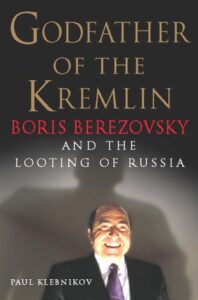
Taking part in the media life of the country, Berezovsky acted as a producer of the film “Purgatory”, directed by Alexander Nevzorov (included by the Ministry of Justice in the list of individual foreign agents).
In 2000, Pavel Klebnikov’s book “Godfather of the Kremlin Boris Berezovsky, or the History of the Plunder of Russia” was published about Berezovsky’s activities. The author in this work provided evidence of the oligarch’s involvement in fraudulent schemes, money laundering, connections with militants and organizing the murders of opponents.
Boris Abramovich did not sue the publicist. But in 2004, Klebnikov was killed in the Russian capital. The criminals remained unidentified. The billionaire himself soon gave an interview in which he offered his versions of what happened. None of them were related to himself.
Personal life:
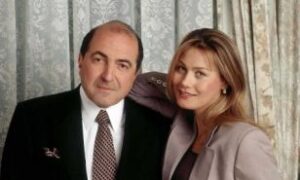
In the personal life of Boris Berezovsky there were three wives, each of whom bore him two children. His first wife, Nina Korotkova, studied with him at the same university, two years younger. They became a family in the early 70s and gave birth to two daughters – Elizabeth and Catherine.
From his second wife, Galina Besharova, who married him in 1991, Boris Abramovich has a son, Artem, born back in 1989, as well as a daughter, Anastasia, who appeared a year after the wedding. However, the family did not stay together for long. In 1993, Galina and her children left for London, and the couple no longer lived together. The divorce was finalized in 2011, and Besharova, through the court, managed to achieve a record amount of compensation for the UK: Boris Berezovsky paid his wife about 200 million pounds sterling.
While still in Russia, the oligarch, while remaining officially married, met another woman, Elena Gorbunova, with whom he has a daughter, Arina, and a son, Gleb. This marriage was not registered, however, when Berezovsky and Gorbunova broke up completely, the woman brought a claim against him as a common-law spouse and the father of her children for several million pounds sterling. None of Boris Abramovich’s children became interested in politics, although the sons and spouses of his daughters started their own businesses.

After the politician’s death, model Daria Konovalova gave an interview to Tatler, from which the public learned about Berezovsky’s last love. According to her, their romance began when Boris Abramovich was still living in a civil marriage with Gorbunova. The oligarch even proposed to Dasha to marry him, twice, but the matter did not reach official registration. A couple of years before his death, they broke up, but the man in love with Konovalova continued to give her expensive gifts and pay for her travels.
As close friends of Berezovsky say, he followed a strict daily routine. Four hours a day were allocated for sleep. He planned all meetings, both business and personal, in advance. But he was still late, because he was not punctual. Boris Abramovich loved to visit theaters, restaurants and nightclubs, and also preferred to have a noisy company gather around him.
Death of Boris Berezovsky:
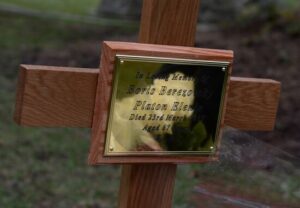
It is believed that there have been multiple attempts on Boris Berezovsky’s life. In the summer of 1994, a businessman’s Mercedes was blown up, killing the driver and injuring a security guard and passers-by. The crime boss Sergei Timofeev, nicknamed Sylvester, was suspected of the assassination attempt, but he was soon killed himself. And in 2007, the murder of Berezovsky was prevented in London, where the alleged killer, who was among the Chechen militants, came to kill a Russian businessman, but was accidentally arrested by the police on another suspicion.
The death of Boris Abramovich on March 23, 2013 was unexpected. Although the British coroner stated that it was impossible to reliably establish the circumstances of the death, the official version of the cause of death is suicide. The oligarch’s body was found in the bathroom of his ex-wife Galina’s house, locked from the inside; a scarf lay nearby; there were no signs of a struggle.
At the end of his life, Berezovsky was broke and in a state of severe depression. A sharp decrease in the funds in his accounts was facilitated not only by divorces and compensation to ex-wives, not only by investments in geopolitics, but also by the lost lawsuit against Roman Abramovich, as a result of which he was forced to pay legal costs.
In addition, by this time Badri Patarkatsishvili, an associate of Berezovsky, had died. Their assets were not legally divided, and Boris Abramovich lost his share. In a recent interview, the Russian businessman said that the death of his partner was a blow for him, despite the fact that their relationship had been deteriorating since 2006.
Some experts insisted on the murder of the oligarch. The deceased had a rib knocked out, which indirectly indicated a violent death. German forensic expert Bernd Brinkmann adhered to this version.
Bibliography:
2007 — “My Maidan of Independence”
2013 — “Self-portrait, or Notes of a Hanged Man”
Filmography:
1997 — “Purgatory”
Fraud Scandal:

How Vladimir Putin spoke about the oligarch’s letters:
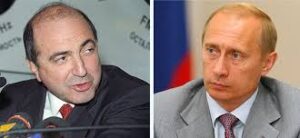
At the end of April, during a “direct line”, the Russian President said that he had received two letters from Boris Berezovsky with a request to allow him to return to his homeland, and one of them was delivered after the death of the oligarch. “I received the first letter from him at the beginning of this year, somewhere in February, in my opinion. The second letter was quite recently, after his death. The text is the same,” Putin said.
Answering a question about possible versions of Berezovsky’s death, Putin said that Russia has no information that foreign intelligence services may be involved in this. “What will happen to them. I don’t know, anything is possible. But we don’t have such information,” said the head of state.
Hyperboloids of engineer Berezovsky:
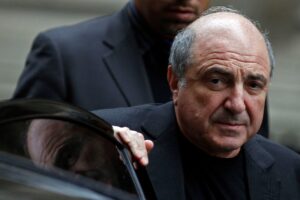
One of the schemes, which Berezovsky created in the early 90s, was unraveled only towards the end of the 2000s. When privatization began in the country, he headed the All-Russian Automobile Alliance (AVVA).
Nowadays such an event would be called crowdfunding. Berezovsky proposed investing the vouchers that were issued to the population into his concern in order to later use these funds to build a plant for the production of the “people’s car.” People were given a kind of lottery tickets – certificates of deposit of shares (SDA).
The plant was never built due to lack of funds. But the collected $50 million was enough to buy AvtoVAZ shares. Berezovsky then created a looped scheme in which the plant controlled itself. It turned out that the owner of AvtoVAZ was the one who was currently sitting in the manager’s chair.
And everyone seemed to have forgotten, but already in 2007, unexpectedly, people were offered to buy SDA from them. It turned out that the new owner, in order to unravel Berezovsky’s tangle, needed to buy out the certificates from small shareholders.
His worst scheme:
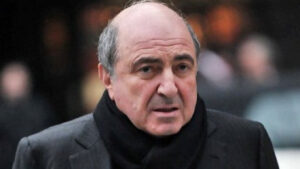
Where did Berezovsky stumble? There can be many different versions here. I’ll express my opinion – I think that people who are too passionate about achieving the main goal, like horses in blinders, see only the light at the end of the road, not paying attention to the details and nuances.
And here again I remember Garin, who was too enthusiastic and too arrogant to appreciate the danger from Vasily Shelga, an employee of the Leningradsky, which is typical, criminal investigation department.
Berezovsky was also crippled by the unsuccessful scheme with Sibneft. No, to begin with, everything was quite successful – the company was created in 1995 by decree of President Boris Yeltsin. In the next two years, it was privatized for 100 million. Initially, Berezovsky himself steered Sibneft, but after all the procedures were completed, he handed the helm to Roman Abramovich, who 10 years later sold 75.7% of the shares for 13 billion.
There is a feeling that it was this resentment that did not let go of Berezovsky, who since 2007 has been trying to bring Abramovich to trial on the grounds that he forced him to sell Sibneft shares at a reduced price, taking advantage of political pressure.
Interesting Facts:
- The businessman’s grave is located in London’s Brookwood Cemetery. In 2017, a photo of the burial site appeared on the Internet, which was surprising in its neglect. A conspiracy theory has emerged that Berezovsky faked his death. But people close to the family denied this version.
- Russian statesmen called Boris Berezovsky a “political adventurer.”
- In the UK, the billionaire was issued a refugee passport in the name of Platon Elenin.
- The businessman traveled with him to the republics of the former USSR.
- In 2012, Boris Abramovich would prefer to see “Lenya Parfenov” in the chair of the Russian President.
